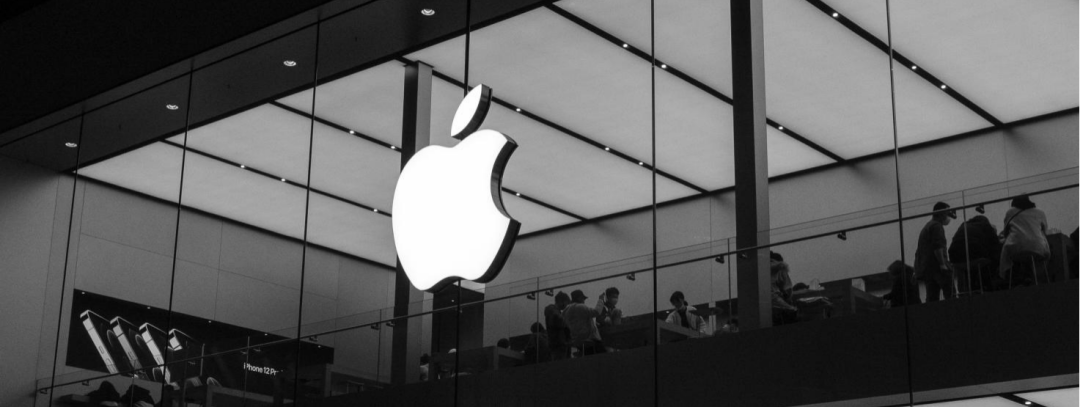
ж–Үжң«жү«з ҒжҠҘеҗҚ
What Rockets a Brand into Cult Following Status?

Para. 1-3В» з”ұгҖҠиҠӯжҜ”гҖӢеј•еҸ‘зҡ„зғӯжҪ®еј•еҮәеҜ№зӢӮзғӯе“ҒзүҢзҡ„и®Ёи®әпјҢжҰӮиҝ°е“ҒзүҢжҲҗеҠҹзҡ„иҰҒзҙ
Para. 4-5В» дёҫиӢ№жһңдёәдҫӢпјҢд»Ӣз»ҚзІүдёқеҜ№иӢ№жһңзҡ„зӢӮзғӯиҝҪжҚ§
Para. 6-7В» и§ЈйҮҠзӢӮзғӯе“ҒзүҢиғҪеӨҹдёҺж¶Ҳиҙ№иҖ…зҡ„з”ҹжҙ»ж–№ејҸзҙ§еҜҶз»“еҗҲпјҢжҲҗдёәиә«д»Ҫзҡ„иұЎеҫҒпјҢ并дёҫе“Ҳйӣ·жҲҙз»ҙжЈ®дёәдҫӢ
Para. 8-10В» жҢҮеҮәзӢӮзғӯе“ҒзүҢиғҪеӨҹз»ҷдәҲж¶Ҳиҙ№иҖ…вҖңиҮӘжҲ‘жҸҗеҚҮвҖқзҡ„жүҝиҜәпјҢ并йҷҚдҪҺйҖүжӢ©иҙҹжӢ…
Para. 11-12В» жҢҮеҮәзӢӮзғӯе“ҒзүҢиғҪеӨҹжһ„е»әеҝ е®һзҡ„зІүдёқзӨҫеҢәпјҢжү“йҖ еҸЈзў‘пјҢиҝӣдёҖжӯҘеҗёеј•жӣҙеӨҡзІүдёқ
Para. 13В» жҖ»з»“е…Ёж–ҮпјҢе»әи®®е“ҒзүҢиҗҘй”ҖдёҚеә”д»…йҷҗдәҺжҺЁй”Җдә§е“ҒпјҢиҖҢжҳҜиҰҒжҺЁе№ҝдёҖз§Қз”ҹжҙ»ж–№ејҸ
748words
[1]Director Greta GerwigвҖҷs Barbie film has surpassed the $1bn (ВЈ790bn) mark at the global box office. Yet fans arenвҖҷt just lining up for tickets, theyвҖҷre also clamouring for вҖңBarbiecoreвҖқ fashion, air travel bearing the Barbie logo and even Barbie-themed coffins.
[2]ThatвҖҷs just a fraction of the pink-hued consumption happening across market sectors. Consumers were always loyal to the Barbie brand, but GerwigвҖҷs film has seemingly kicked the extreme fandom into a higher gear вҖ“ even six decades after the toyвҖҷs inception.
[3]So, what rockets a brand вҖ“ or even a person вҖ“ into this venerated and highly coveted cult status with intense staying power? Experts say itвҖҷs a mix of strategic marketing, intimate consumer messaging and some right-place-right-time magic.В
[4]Among the brands with the most recognisable cult followings is Apple, with fans who have lauded the company since its founding in the 1970s. Rhea Freeman, a UK-based PR adviser, is a self-proclaimed member of the Apple cult. вҖңI am committed to the brand and donвҖҷt see a time when I would buy a non-Apple computer or phone or tablet,вҖқ says Freeman.В
[5]Freeman maintains her appreciation for Apple products goes far beyond product affinity вҖ“ itвҖҷs an integral part of her lifestyle. вҖңEvery aspect of it has been well thought through to bring delight to the purchaser from start to use, to inspire loyalty, to create that cult following. And itвҖҷs done in a seemingly effortless way.вҖқ
[6]Yet Susan Fournier, the Allen Questrom Professor and Dean at Boston UniversityвҖҷs Questrom School of Business, says thereвҖҷs nothing effortless about it. Fournier explains cult brands carefully tap into the consumer psyche to become closely intertwined with fansвҖҷ lifestyles, adding that these companies donвҖҷt just sell products вҖ“ they tap into a вҖңresonant cultural themeвҖқ.
[7]She cites American motorcycle manufacturer Harley-Davidson as an enduring example, noting the brand goes beyond an вҖңisolated sliver of consumer behaviourвҖқ to market a distinct lifestyle. вҖңYou see people riding with friends, you see the emergence of [branded] clothing вҖ“ it becomes how you look, who you hang out with, what you believe in,вҖқ she says.В
[8]US-based author and podcaster Amanda Montell argues cult brands go beyond the lifestyle realm, permeating consumersвҖҷ innate sense of self. Montell is the author of Cultish: The Language of Fanaticism, which explores how language influences cult activity in and out of the consumer realm. She explains cult brands offer вҖңidentity benefitsвҖқ, which assert a sense of community and meaning and provide вҖңa transcendent promiseвҖқ beyond the product itself.
[9]вҖңMillennial [and Gen Z] consumers in particular are the least brand-loyal of any generation of consumer,вҖқ says Montell, explaining that younger consumers are quick to sniff out вҖңmarketing malarkeyвҖқ. She notes that, to strike gold with those more sceptical buyers, brands must promise something more: вҖңThat by affiliating with, for example, this makeup line or even just this single makeup product, you will be a better you.вҖқ
[10]Montell adds that this promise acts as a balm in a labyrinthine realm of consumer choice. вҖңOn social media, weвҖҷre able to see infinite options of where our life could go,вҖқ she says, arguing that the seemingly endless choices create an overwhelming chooserвҖҷs paradox. вҖңWhen a brand enters the picture and offers a template for who you should be and what choices you should make, that feels really satisfying and nurturing.вҖқ
[11]Claudio Alvarez, an assistant professor of marketing at Baylor UniversityвҖҷs Hankamer School of Business, says that certain cult brands feel вҖңalmost like being with a friendвҖқ. He adds, вҖңWhen a community of devoted consumers form around a brand, becoming a part of this community adds an extra layer of connection and loyalty.вҖқ
[12]In market terms, that warm, fuzzy feeling can translate to staying power. вҖңPeople want to share their love of the brand with other members of the community, generating word-of-mouth and creating online content related to the brand,вҖқ says Alvarez. вҖңThey want more people to know and like the brand вҖ“ to become part of the community.вҖқВ
[13]In an economy where consumer choice can seem more than overwhelming, achieving cult status may be one a of brandвҖҷs few chances at lasting success вҖ“ be it toys, technology or motorcycles. When even the most mundane products offer an identity promise, brands must transcend the noise and find ways to meaningfully connect with an increasingly sceptical consumer base. Now, it seems, a marketing plan neednвҖҷt only sell a product вҖ“ the best ones, say experts, tout a lifestyle, complete with promises of community and even self-improvement.В
жң¬ж–ҮиҠӮйҖүиҮӘпјҡBBC
еҺҹж–Үж ҮйўҳпјҡWhat Rockets a Brand into Cult Following Status?
еҸ‘еёғж—Ҙжңҹпјҡ2023.8.16
жү«з Ғе…Қиҙ№
иҝӣеӨ–еҲҠзҫӨ







